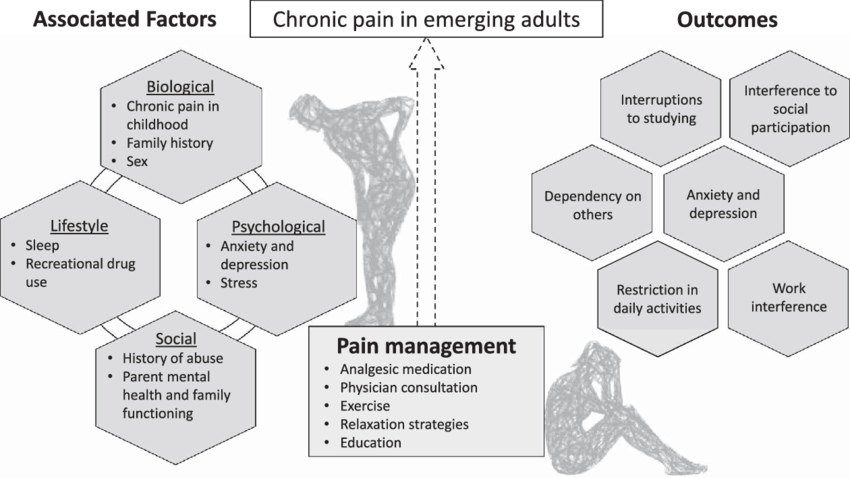Management Strategies of Chronic Pain
Chronic pain management involves a different approach to address the complex nature of persistent pain conditions. It typically requires a combination of medical, psychological, and lifestyle interventions tailored to the individual. Here are various chronic pain management strategies:
– Medication: Certain medications from these classes can help modulate pain signals and improve mood, making them useful for neuropathic pain.
– Physical Therapy: Physical therapists employ exercises, stretches, and manual techniques to improve mobility, strength, and flexibility. Tailored exercise programs can enhance overall functioning and reduce pain.
– Occupational Therapy: Occupational therapists focus on improving daily functioning and quality of life by addressing activities of daily living and teaching strategies to manage pain.
– Cognitive-Behavioral Therapy (CBT): CBT helps individuals identify and change negative thought patterns and behaviors associated with chronic pain. It can improve coping mechanisms and reduce the emotional impact of pain.
– Mindfulness and Relaxation Techniques: Practices like mindfulness meditation, deep breathing exercises, and progressive muscle relaxation can help individuals manage stress and reduce the perception of pain.
– Biofeedback: Biofeedback involves using electronic monitoring to provide real-time information about physiological processes. Individuals learn to control these processes to reduce pain.
– Exercise and Physical Activity: Regular physical activity, including low-impact exercises like swimming or walking, can help improve strength, flexibility, and overall well-being.
– Pain Education and Self-Management Programs: Learning about pain, its mechanisms, and self-management techniques empowers individuals to take an active role in their pain management. Education can reduce fear and anxiety associated with pain.
– Nutrition and Lifestyle Modifications: Adopting a healthy lifestyle, including a balanced diet, proper hydration, and adequate sleep, can positively impact pain levels. Maintaining a healthy weight can also reduce stress on joints.
– Support Groups and Counseling: Connecting with others who experience chronic pain through support groups or counseling can provide emotional support, validation, and the exchange of coping strategies.
– Pharmacological Alternatives: Some individuals explore non-traditional options such as medical cannabis or herbal supplements. It’s essential to consult with healthcare professionals before trying these alternatives.
– Spinal Cord Stimulation: Implantable devices can be used to deliver electrical signals to the spinal cord or peripheral nerves, disrupting pain signals and providing relief.
Chronic pain management is often individualized, and a comprehensive approach involving multiple strategies is typically more effective than relying on a single intervention. Collaborative care involving healthcare providers, specialists, and the individual with chronic pain is crucial for developing a personalized and effective treatment plan.




Post Comment